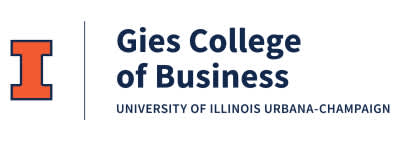Classes start on March 18, 2026.
Enroll by February 5, 2026.
8 - 24 months
Minimum time to complete. May vary depending on course load and start date.
$4,164
Tuition and fees are subject to change.
100% online
Faculty teach live classes and offer weekly office hours.
Understand global business and how to responsibly pursue opportunities and confront challenges in this arena.
Hands-on practice
Through projects, exercises, and case studies, you’ll build the experience and confidence to apply what you learn in the program on the job.
Top faculty
Benefit from multiple opportunities to engage with and learn from world-class experts. Faculty teach live classes and offer weekly office hours, and teaching staff are available to provide support as needed.
Curated, stackable content
In this program, you’ll build knowledge and gain skills that are aligned with real-world demands and opportunities, based on the latest research and connections within global business. Additionally, the certificate stacks directly into the full Master of Business Administration (iMBA), Master of Science in Accountancy (iMSA), or Master of Science in Management (iMSM) from the University of Illinois. Upon completion of the certificate program, you can take 12 credit hours of completed work and apply that toward one of those degrees now or in the future.
Program description
Overview
The Global Challenges in Business Graduate Certificate prepares students for the global challenges that businesses face in the 21st century. This certificate covers how business strategy is formulated and implemented in the global arena in all its complexities. It also covers the role of ethics and corporate responsibility in addressing global challenges such as poverty and the environment. The curriculum enables understanding of global business and how to pursue opportunities and confront challenges in this arena responsibly.
Benefit from live, interactive learning sessions with instructors and receive actionable feedback from teaching staff and fellow learners. Through hands-on projects, exercises, and case studies, you’ll develop experience and insight into global challenges in business that you can apply immediately in your career.
The certificate stacks directly into the full Master of Business Administration (iMBA), Master of Science in Accountancy (iMSA), or Master of Science in Management (iMSM) from the University of Illinois.
Required background
A bachelor's degree is required and professional experience, skills, or knowledge related to business concepts is preferred.
Skills you will gain
- Global Business Acumen
- Global Strategy Formulation
- Global Marketing and Management
- Cultural Frameworks
- Foreign Market Entry
- Global Organizational Management
- Cultural Marketing Strategies
- Multicultural Team Management
Complete 3 required courses
Course 1 of 3
MBA 547: Global Marketing
Overview
Globalization has brought dramatic changes to businesses. Markets are growing culturally diverse, and companies face the challenge of managing an increasing culturally diverse workforce. This course enables students to understand how globalization changes consumers and employees at a psychological level. The focus is on understanding that culture exists in the mind (e.g., values and beliefs) as well as in the environment (e.g., objects, brands, and institutions), and that globalization creates multi-cultural spaces in contemporary societies. The course provides cultural frameworks for better understanding cross-cultural consumer behavior and introduces the key steps for developing a global marketing plan. This includes an environmental analysis to provide cultural insights into the preferences of consumers in the new market, an audit of the brand under which products and services will be offered, and the integration of this information into a culturally focused marketing plan. Because brands often operate in multiple markets, a new culturally focused marketing plan needs to be harmonized with the current marketing strategy in existing markets. The course closes by reviewing the different approaches that successful global brands have taken in this regard.
Course 2 of 3
MBA 548: Global Strategy
Overview
Starting in the late 1990s, “globalization” became a buzzword to describe the apparent integration of markets in the world economy. Many authors and pundits claimed that the world was converging towards a market-friendly democratic place, while gurus and consulting firms were spreading advice on how to make profits out of the global economy. Decades later, new realities show that globalization does not mean political, cultural, and economic convergence and that forces against it are strong.
This course seeks to understand how firms adapt to, react towards, and shape the global economy. Students should be able to evaluate markets and be familiar with the best strategies firms should follow when operating globally.
Course 3 of 3
MBA 549: Multiculturalism in Management and the Marketplace
Overview
This course introduces the fundamentals of cross-cultural management by describing the impact of culture on interpersonal processes in organizations, discussing how culture shapes decision-making, negotiation, leadership, teamwork, and organizational structure. Additionally, this course introduces the foundations for dealing with multiculturalism in the marketplace, discussing how culture impacts consumer behavior and how marketers can leverage these insights.
Instructors
Frequently asked questions
Coursera does not grant academic credit; the decision to grant, accept, or recognize academic credit, and the process for awarding such credit, is at the sole discretion of the academic institutions offering the Graduate Certificate program and/or other institutions that have determined that completion of the program may be worthy of academic credit. Completion of a Graduate Certificate program does not guarantee admission into the full Master’s program referenced herein, or any other degree program.
